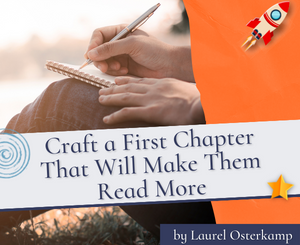Thinking Outside the Box
Welcome to our bi-weekly posts from guest columnist, Bobbye Terry. This week she offers fun tips for thinking outside the box. We’re curious to hear your tips too! Share your thoughts with us! Thanks!
*^*
A couple of months ago, I told Beth I planned to write about thinking outside of the box. It’s something I enjoy doing and those who read my work will notice that most of my stories don’t follow the typical logical pattern of many novels.
“Isn’t that bad?” you ask. I don’t think so. I prefer to think of it as fresh. You know the old saying: “If you do what you’ve always done, you get what you’ve always gotten.” So, in this particular case, the equally old adage of “don’t fix what isn’t broken” needs to be examined.
You see, being human, most of us are programmed at an early age to follow certain rituals and conventions, flavored by our culture, ethnicity, country of origin and decade in which we were born, just to name a few. Most of us believe that by following these conventions we are less likely to be singled out for ridicule or scrutiny. Maybe so, but we can become very boring, and so can our writing.
So, how do you break out of your mindset and think outside the box?
First let me point out that, ironically, the phrase,” think outside the box” is now considered a cliché itself, and thus, a less attractive phrase to use than one never used before.
So, let’s invent a new one like “crack through the conscience” or “jet off from the plot,” okay?
To begin, think about a book you want to write. Write down a sentence that captures the essence of the story you wish to pen. I’ll start. I just began a novella series about women executives in a lipstick company who wish to gain market share and be number one in the nation for lipstick. There’s my premise. Okay what are my assumptions? You think about your work and write down all your assumptions regarding the premise of the story. Brainstorm on this, no idea is too silly.
My assumptions are, number one, that the company is based in New York or L.A., those two locations being the fashion and glamour meccas of the country. Second assumption is this is a hard driven business and there is a lot of competition that will play dirty. Third assumption is that someone from a competing company is the villain. Okay, there are many more, but you get the picture. You should have a lot of assumptions on your paper, at least seven or more.
Now that you’ve thought logically think illogically. Assume the absurd. What if the company isn’t in New York or L.A., but in Dallas or Cedar Rapids, or a small rural town is South Carolina? None of these are truly absurd, mind you, just less likely. If I wanted to write a sci-fi, I could have the company on the planet Xyrene, a new US territory. Now assuming the absurd about assumption number two: what if the competition is really between only two players, and both are located in the south. Additionally, what if the competition hasn’t been playing dirty but has a better product—for now. Third assumption turned on its ear: what if the competition is headed by the former boyfriend of the CEO of the female lipstick corp? Take it one step further: what if the competition also employs the CEO’s brother?
Are you getting the idea now? Here are a few other ideas about breaking from the status quo:
1) First, as already mentioned, don’t use clichés. Think of new terminology to express ideas (unless you’re in a region of the country, like the south and the cliché is in the internal or external dialogue of the character).
2) Write backwards. Start at the end of the story and come forward. This helps break up your linear approach.
3) If you find yourself with a bad case of writer’s block, break the pattern by doing something unrelated, like solving a mind puzzle, driving through the country or taking a shower. The mind often processes problems better when it’s left to subconsciously muddle through it.
I hope this has helped you identify new and fresh approaches to your writing. Some of you probably have ideas I haven’t even mentioned, so, please share.
*^*
Bobbye Terry is the multi-published writer of fantasy, suspense and romantic comedy novels under her own name, her solo pseudonym, Daryn Cross, and her co-authored one, Terry Campbell. Her previous works have garnered finalist awards in the Booksellers’ Best and other RWA-sponsored contests. Bobbye’s most recent releases are Millicent and Frozen Assets, available now on Kindle and Smashwords and her first mystery novella, Buried in Briny Bay, from Turquoise Morning Press, is also currently available at most distributors. More at http://www.daryncross.com/.








Great post, Bobbye, Beth!
Since you ask, something I do to shake the cliches out of the box, once I’ve done the “logical” brainstorming step you describe, is to distill those ideas down to a series of “keywords”. From the example you give, I might derive the following list:
lipstick executive glamor mecca hard-driven “play dirty” New York Los Angeles “number one”
I’ll type those keywords into Google’s (or your favorite search engine’s) search bar and see what comes up. Two minutes later, I’ve got the following, which I copied and pasted from the first url I clicked on:
“With its dazzling skyscrapers, bright lights and ubiquitous symbols of modernity, Singapore has long worked its magic on Rachel Liew, 20.
“Even as a young girl visiting the city-state with her family from her native Malaysia, Singapore’s clean streets, convenient public transportation and modern lifestyles made a lasting impression.
“As Ms. Liew grew older, she came to believe that Singapore could also offer a better education than her homeland, and in 2008, she packed her bags and headed south across the border to pursue a degree in mechanical engineering at Nanyang Technological University.
“’I might return to Malaysia if I had a really good job offer there, which I think would be unlikely, or if I eventually get married to a Malaysian who wants to live in his hometown,” said Ms. Liew, one of about 700,000 Malaysians living abroad. “But other than that, I think I would probably settle down in Singapore.'”
I wouldn’t use any of this verbatim, of course, but it certainly shifts my thinking in ways that would never happen any other way, it’s just random enough to be fun, and it even gives me some insight into a potential character that I might want to work with. By far the most compelling reason to use keywords this way, though, is that you get to tell people you’re “researching” your novel.
Interesting idea, Ien! Thanks for sharing.
Bobbye
This post was brilliant. Reminds me of how I think. It is a great jump to the engines to think in new ways like this.